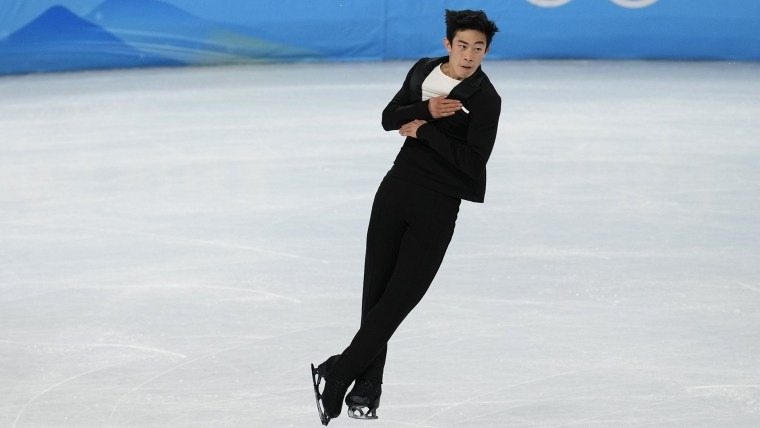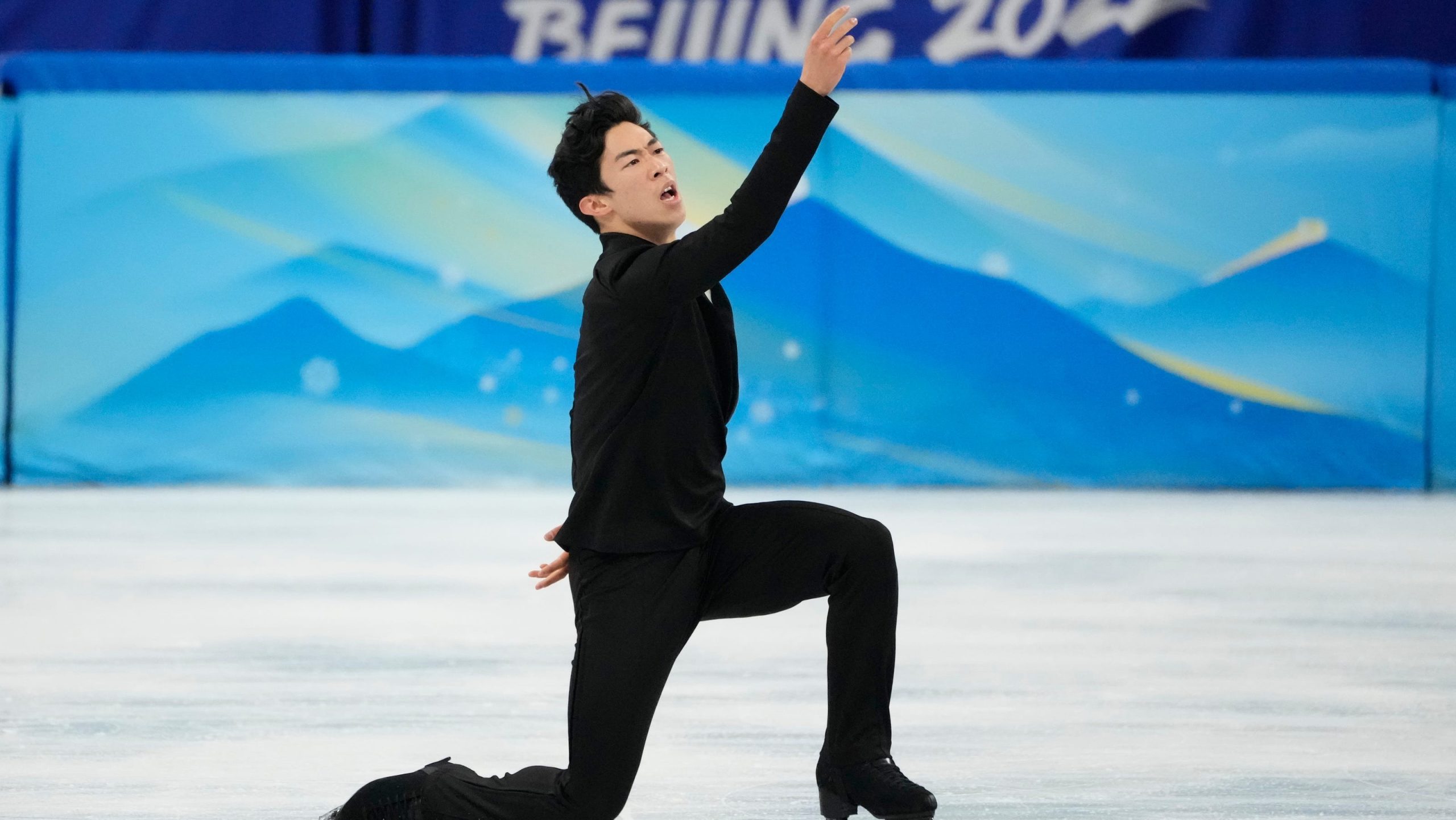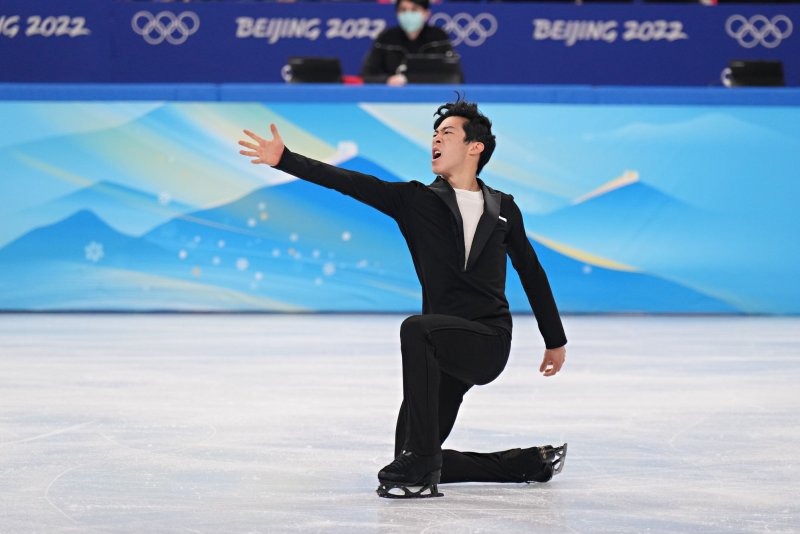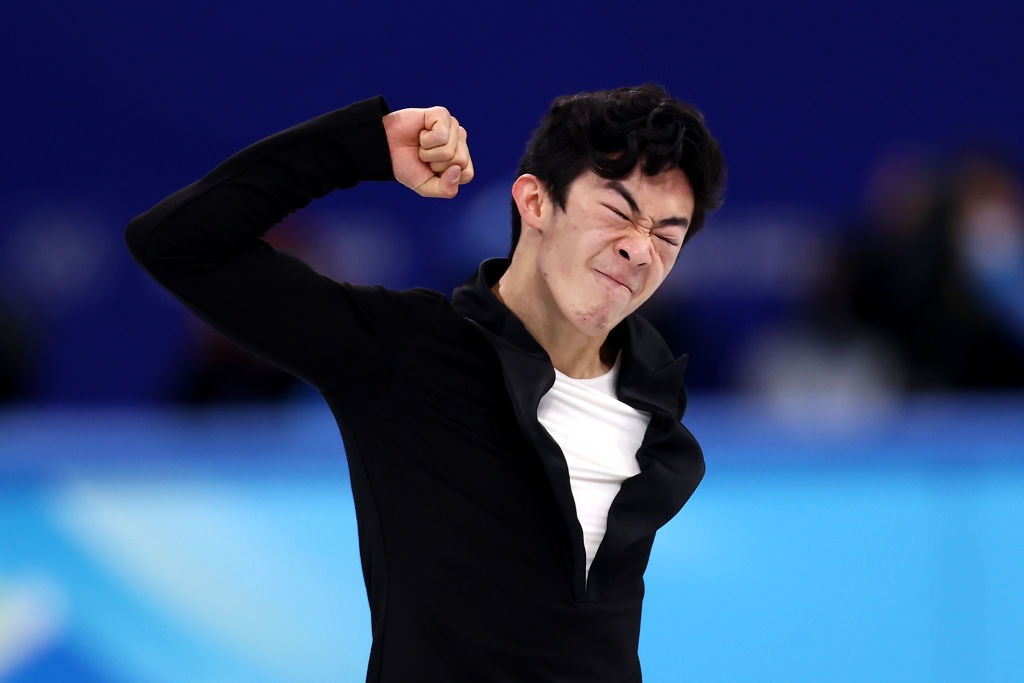Nathan Chen broke the world record in his short program at the Beijing Olympics, scoring 113.97 points on Tuesday to surpass longtime rival Yuzuru Hanyu’s previous mark and put himself in position to win his long-awaited gold medal.
With a confident smile as he stepped onto the ice, the 22-year-old Chen made the most of his poor performance from four years ago in Pyeongchang. He opened with a perfect quad-Flip, breathed through a triple axis that sometimes causes him problems, and then drilled his Quad-Flip-Triple Toe Loop combination to impress most of the crowd.
Chen’s overall standings are nearly six points ahead of Yuma Kagiyama, who is in second place, and nearly 20 ahead of Hanyu, the two-time Olympic champion rescued on his first Quad attempt during a disastrous short program.
“I was just excited,” said Chen, who helped the U.S. win team silver earlier this week. “At the last Olympics, the two short programs didn’t go the way I wanted. Finally having the opportunity to skate the programs I wanted feels really good.”
Now there is only one strong Free-Skate Thursday left for the charismatic Chen to become Olympic champion.

“There is a lot of preparation and a lot to learn from year to year,” he said. “I have certainly gained a lot of experience in recent years, and it is certainly you who learn the most from your mistakes.”
Kagiyama drilled a pair of Quads and a triple axel during his own dynamic short program to finish with 108.12 points, while his Japanese skater Shoma Uno—reigning Olympic silver medalist —finished third with 105.90 points.
In place of Hanyu, their longtime idol, Kagiyama and Uno will be on the way to Chen’s gold medal.
“I’m really shocked today, but I still have a chance,” said Hanyu, who believes his skate hit a hole early in his short program, forcing him out of a planned quad-Salchow and leaving him in eighth place with 95.15 points.
The showdown between Chen and Hanyu has been building over the past four years, ever since Chen pulled a “catastrophic” short program out of the medal action in Pyeongchang before it felt like it had arrived.
Instead of taking a break after, Chen doubled down, working tirelessly with longtime coach Rafael Arutyunyan while working toward his degree at Yale. He perfected every aspect of his figure skating, from technical notes to his art. he began to set up programs that no one else had the courage to try.
The short program he finished in Beijing with an underlying score of 36.27 points was the toughest of the competition.
Chen’s meteoric progress to his second Olympics, a course that included three world championship titles and the most recent of his six national championships, was in stark contrast to the bumpy and rugged course Hanyu took in Beijing.
After being the first man to successfully defend an Olympic title since American skater Dick Button, Hanyu took a break from the Sport to repair a ligament health-issue in his right ankle. He skipped the Grand Prix season due to the recent time, then missed the previous Grand Prix Season due to additional right ankle problems.

But just when it turned out that Uno and Kagiyama had surpassed the 27-year-old Hanyu, he showed up at the Japanese championship in December and got his crown back.
The long-awaited match between two titans of figure skating was scheduled for Beijing.
It took about as long as it takes to lace up the skates.
The supernaturally balanced Hanyu, skating far ahead of Chen, was seconds into his program when he settled in for the first of two scheduled Quads. But by the time he took off, something was amiss and Hanyu jumped out of the Salkhov to get some air from the carefully separated crowd of a few thousand at the Capital Indoor Stadium.
The Salchow quad carries an underlying score of 9.70 points; Hanyu received none.

“I’m happy with my skating after the first jump,” Hanyu said.
As if he wanted to drive his extraordinary misstep home, though, Uno was next on the ice and played perfectly. He landed his first quad-Flip, and then made a combination of Quad-Toe loop and triple-Toe-Loop look simple. When Uno finished his program with a Vivaldi concert, He had collected 105.90 points and took first place.
Then Kagiyama passed right in front of him and allowed the Japanese team to win two Olympic medals again.
“There’s still a day to adapt,” Uno said, “and I’m going to bring my best for the competition.”

